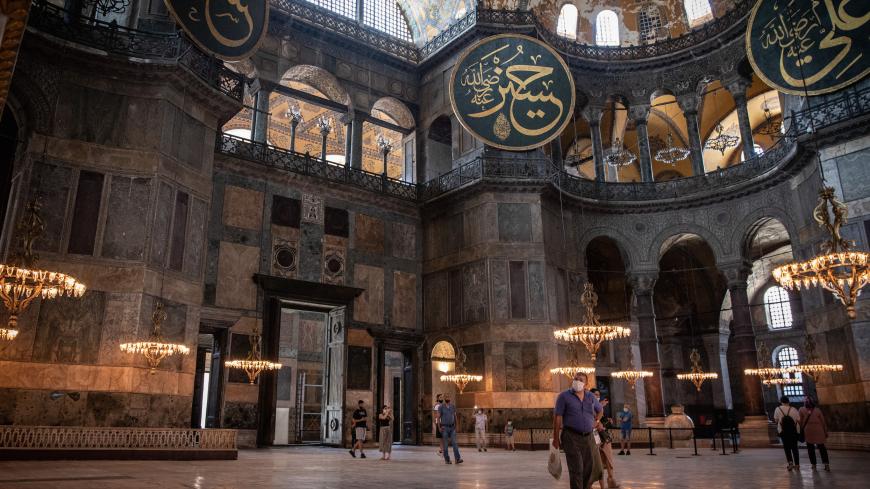ISTANBUL — Discussions of converting Istanbul’s iconic Hagia Sophia into a mosque have percolated for years in Turkish politics. And following a brief hearing Thursday, a Turkish court is preparing to issue a verdict on the matter within 15 days.
The sixth-century structure was originally built as a cathedral and converted into a mosque following the 1453 Ottoman conquest of Constantinople, today known as Istanbul. The Hagia Sophia was later changed into a museum in a 1934 decision that came about a decade after the founding of the Republic of Turkey by Mustafa Kemal Ataturk.



